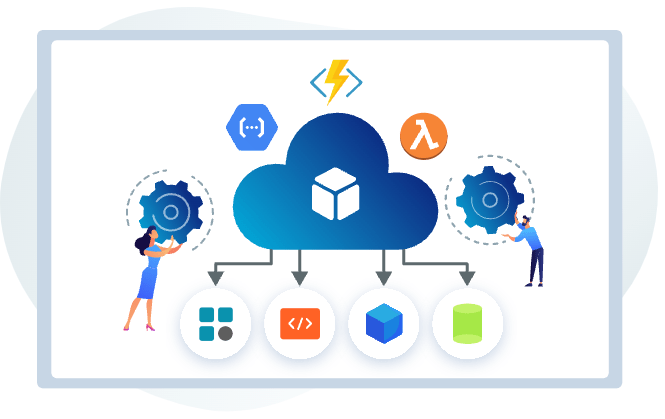
Serverless computing, also known as Function as a Service (FaaS), has emerged as a revolutionary paradigm in cloud computing. It enables developers to build and deploy applications without the need to manage traditional servers. In this blog post, we’ll look into the world of serverless computing and explore its diverse use cases and compelling advantages.
Understanding Serverless Computing
Before we dive into the use cases, let’s briefly understand what serverless computing entails. Serverless computing is a cloud computing model where the infrastructure is managed by the cloud provider, and resources are allocated automatically based on application needs. Developers write and deploy code in the form of functions, which are executed in response to events or triggers.
Serverless Computing Use Cases
1. Web Applications and APIs
Serverless computing excels in developing web applications and APIs. Functions can be triggered by HTTP requests, efficiently handling web application logic or API endpoints. This model enables automatic scaling based on demand, ensuring optimal performance and cost-effectiveness.
2. Real-time File Processing
Serverless functions can process files in real-time upon upload to cloud storage. This is invaluable for applications requiring immediate file processing, such as media conversion, image optimization, or document parsing.
3. Event-Driven Processing
Event-driven architectures align seamlessly with serverless computing. Functions can be triggered by various events, such as changes in a database, new messages in a queue, or updates to a storage container. This makes serverless ideal for processing data streams, real-time analytics, and responding to IoT events.
4. Chatbots and Conversational Interfaces
Serverless computing facilitates the development of chatbots and conversational interfaces. Functions can handle and process user input, invoke natural language processing (NLP) algorithms, and generate real-time responses. The serverless approach allows for scaling based on chatbot demand, ensuring responsiveness during peak usage.
5. Scheduled Tasks and Cron Jobs
Automated tasks requiring scheduled execution, such as data backups, report generation, or system maintenance, can be efficiently handled using serverless functions triggered by scheduled events. This ensures cost-effectiveness by only utilizing resources when necessary.
6. Internet of Things (IoT)
Serverless computing is well-suited for processing and analyzing data from IoT devices. Devices can trigger functions based on various events, allowing for real-time processing and insights generation. This is crucial for IoT applications requiring rapid response and analysis of sensor data.
7. Authentication and Authorization
Serverless functions can be employed to implement authentication and authorization logic. These functions handle user authentication, authorization checks, and validation processes, providing a secure and scalable authentication layer for applications.
Advantages of Serverless Computing
1. Cost Efficiency
Serverless computing follows a pay-as-you-go model, enabling businesses to save costs by paying only for the actual usage of functions. It eliminates the need for provisioning and managing servers, reducing operational expenses.
2. Auto-Scaling
Serverless platforms automatically scale functions based on incoming workload. This ensures that applications can handle varying levels of traffic and demand without manual intervention, providing a seamless user experience.
3. Faster Time to Market
Developers can focus on writing code and building applications without worrying about infrastructure management. This accelerates the development process, enabling faster deployment and quicker time to market for products and features.
4. Simplified Development and Maintenance
Serverless development simplifies the process by allowing developers to write smaller, focused functions. This simplification leads to easier testing, deployment, and maintenance, enhancing the overall development experience.
5. Scalability and Reliability
Serverless platforms inherently provide scalability and reliability. Functions can scale up or down based on demand, ensuring consistent performance and reliability even during traffic spikes.
In conclusion, serverless computing offers a plethora of use cases and compelling advantages that make it an attractive choice for modern application development. By leveraging serverless computing, businesses can streamline development, optimize costs, and deliver highly scalable and efficient applications.